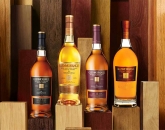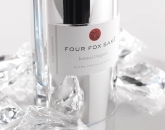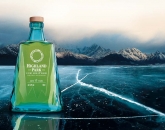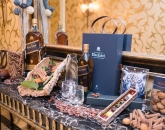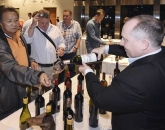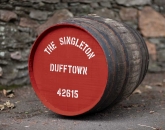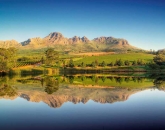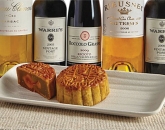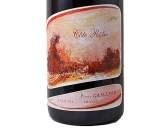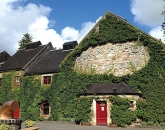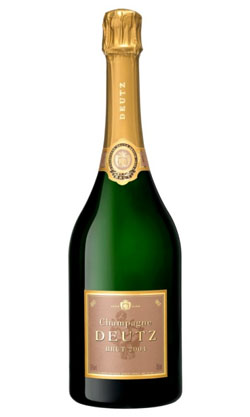 Champagne has always been a drink associated with the lifestyles of the rich and famous, and still, almost two centuries since the Champagne region grew the first roots of the commercial machine it has become today, that same association with pomp, circumstance, celebrity and status is as strong as it has ever been. France's famous sparkling wine still exudes the image of a sexy but refined wine. With Champagne, it's better to be seen drinking it, and the name on the bottle is as important as the label on the inside of one's jacket. Within the Champagne region of France, located in the north of the country about a hundred miles east of Paris, there are currently more than 100 Champagne houses making sparkling wines and over 15,000 vignerons (vine growing producers) growing grapes for the production of this highly sought after drink.
Champagne has always been a drink associated with the lifestyles of the rich and famous, and still, almost two centuries since the Champagne region grew the first roots of the commercial machine it has become today, that same association with pomp, circumstance, celebrity and status is as strong as it has ever been. France's famous sparkling wine still exudes the image of a sexy but refined wine. With Champagne, it's better to be seen drinking it, and the name on the bottle is as important as the label on the inside of one's jacket. Within the Champagne region of France, located in the north of the country about a hundred miles east of Paris, there are currently more than 100 Champagne houses making sparkling wines and over 15,000 vignerons (vine growing producers) growing grapes for the production of this highly sought after drink.
This appellation, or region, is set to expand as the French government has approved a further forty grape-growing areas, accounting for an extra 2500 acres of land.
There will not, however be any immediate impact in the shops and restaurants as vine planting will not have completed until 2015 – and don't expect to see any wine from these vines until at least 2020.
Sales of the world's most luxurious beverage have escalated in recent years with India, Russia and China overtaking traditional markets as the world's leaders in Champagne consumption. Fashion is creeping into the lives and the cultures of all booming economies and those benefiting from this economic and financial snowball are guzzling it by the gallon.
Grapes that are used to produce Champagne are Chardonnay, a white grape, and Pinot Noir and Pinot Meunier, both black grapes. It’s the blend of these grapes that Champagne houses hold in such high regard – and in most cases the final blend is kept a highly confidential matter.
It's these unique blends that give each Champagne its own distinct characteristic, none more so that one of France’s oldest Champagne houses, Champagne Deutz.
While Champagne sales are dominated by the big spenders in the marketing world, there is an increasing demand for elegant, almost boutique-style Champagnes, such as Deutz, and this fine Champagne is making its mark on a global scale. Champagne Deutz is steeped in history. Founded in 1838 by William Deutz, the company has made Champagne production an art form. Today, the past and the present co- exist in the house of Champagne Deutz, as do the rules of tradition and modern methods of management.
Champagne Deutz's continuous pursuit for exceptional quality, whilst maintaining many of the wine-making techniques and philosophies instilled since the early times, has created one of the most sought after brands on the Champagne market.
Champagne Deutz Brut Classic was first released in 1994 and this fine multi-vintage Champagne, blended from selected harvests, has been the latest step in the brand’s evolution.
Champagne Deutz Brut Classic is renowned for its smooth silky style and texture on the palate. With light and easy effervescence it is a pleasurable Champagne to quaff, but retains the complexity and sophistication of a very fine wine.
Over time, the brand has been rewarded with numerous gongs. It is has won silver, bronze and regional medals at Decanter’s annual World Wine Awards, while at London’s prestigious International Wine Challenge, Champagne Deutz won gold and silver awards for both its Brut and Rose styles of Champagne. The winery’s most recent Deutz Classic Brut release was awarded a silver medal in the Decanter 2009 World Wine Awards last month.
Those at the House of Champagne Deutz refuse to let their Champagne become a product of the past. The evolution of wine-making practices and their commitment to quality has taken their quest for fine Champagne, through the merging of tradition and technology, to an entirely new level. Champagne Deutz has truly become one of the world’s most highly respected Champagnes. - James Bradshaw
For more information please visit montrose.com.hk or write to wine@hkgolfer.com
Click here to see the published article.


